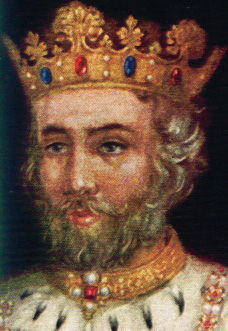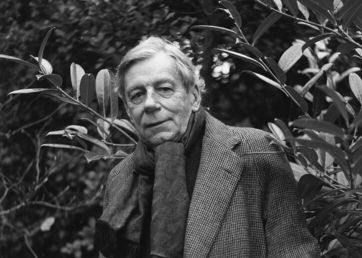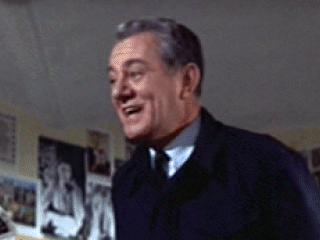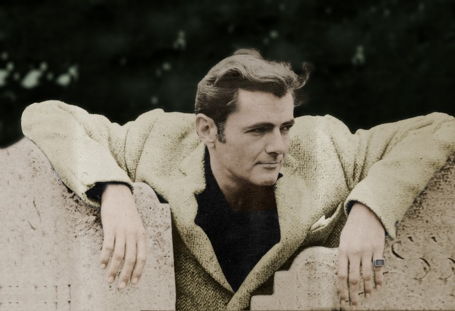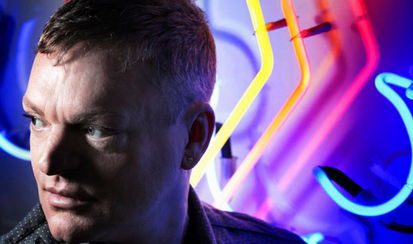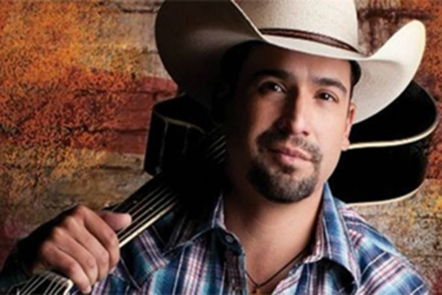|
presents THIS DAY IN GAY HISTORY based on: The White Crane Institute's 'Gay Wisdom', Gay Birthdays, Gay For Today, Famous GLBT, glbt-Gay Encylopedia, Today in Gay History, Wikipedia, and more …
Collected by Ted April 25 [{(o)}]|[{(o)}]|[{(o)}]|[{(o)}]| [{(o)}]|[{(o)}]
1284 – King Edward II of England was born on this date (d.1327). Unlike his warrior father, Edward had little interest in fighting battles himself. His pursuits were not those typically approved of in kings at this time. Edward preferred such activities as swimming, boating, thatching roofs, and arranging theatrical and musical events. Edward also gambled, frequently losing large sums of money. In addition, he formed intense friendships with men whom his father felt wielded too much influence over the prince. Piers Gaveston, a knight from Gascon, was the first and most important of Edward's favorites. Gaveston and Edward may have become intimate friends during the Scottish campaign led by Edward I in 1300. The king became critical of this friendship, and exiled Gaveston from England. In 1307 Edward I died, and Edward II became King of England. He immediately called Gaveston back from exile, despite the opposition of most of the English barony, who disapproved of the new king's close relationship with his favorite. In 1308, leaving gaveston as Regent, Edward travelled to France to marry Isabella, the daughter of King Philip IV of France, in an attempt to bolster an alliance with France. On 25 February the pair were crowned in Westminster Abbey. The marriage, however, was doomed to failure almost from the beginning. The nobles' increasing dissatisfaction with Edward led them to use Gaveston as a way to gain power over the king. In 1311, Thomas, Earl of Lancaster, led the barons to demand a number of political reforms, as well as the exile of Gaveston. Edward bridled at the restrictions, and Lancaster's faction rebelled. Edward and Gaveston were ill-prepared for the rebellion, and after being besieged in his castle, Gaveston quickly surrendered, assuming he would be treated favorably by the Earl of Pembroke. The Earl of Warwick subsequently captured Gaveston and after a bitter exchange, he was tried and convicted of treason, handed over to Lancaster, and summarily executed. Gregory Bredbeck argues that the idea of Edward's homosexuality is "almost entirely an invention" of the late Renaissance. He credits Christopher Marlowe's play The Tragedy of Edward II (1590?) as largely responsible for his inclusion in gay and lesbian history. Edward's love for Gaveston certainly defied conventional boundaries, but it is hard to pinpoint whether Edward's ultimate transgression was simply loving one man too much, thereby unsettling the delicate balance of patronage, or was a violation of sexual boundaries as well. Several of the contemporary chroniclers, while not saying specifically that the relationship between Edward and Gaveston was sexual, certainly describe it in sexual terms, one saying that the king fell in love with the young noble "at first sight." Moreover, as Alan Bray points out, one royal document characterizes the union between the two men as a kind of "wedded" or "sworn" brotherhood, a form of voluntary kinship. We can not say with certainty that Edward practiced same-sex sexual activity with Piers Gaveston. We do know, however, that later in his reign, Edward formed an equally intense relationship with Hugh Despenser. Unlike Gaveston, who had little interest in wielding political power, Despenser used his influence to gain power for himself and his father. In 1322, Edward defied renewed attempts by the nobles to restrict his power and allowed Despenser and his father to rule the country. In 1326, Isabella, who had been estranged from Edward since 1322, and Roger Mortimer, a baron who had become the queen's lover the year before, invaded England and captured Edward and the Despensers. They quickly tried, convicted, and executed Hugh and his father. They officially removed Edward from the throne and imprisoned him. His son became king, while Edward languished in prison. After being tortured, he was killed on September 21, 1327. According to contemporary chonicles, Edward was killed by having a red hot spit thrust into his anus. While this method of execution may have been chosen to conceal signs of torture, the fact that it symbolically suggests homosexual intercourse was not lost on later poets and playwrights who told the story of the king's tragic life and death.
1895 – Raymond Mortimer CBE (d.1980) was a British writer on art and literature, known mostly as a critic and literary editor. He was born in Knightsbridge, London, and brought up in Redhill, Surrey. He was educated at Malvern College, and Balliol College, Oxford, which he entered in 1913 to read history. His studies were interrupted by service in a hospital in France from 1915; and then work in the Foreign Office. He did not complete his degree. In the 1920s he was in Paris, writing fiction. A Francophile, Mortimer broke down in tears when he heard on 21 June 1940 that France had signed an armistice with Germany, saying it was as if half of England had just fallen into the sea. He later became literary editor of the New Statesman, worked at the BBC and in liaison with the Free French in World War II, and subsequently as a book reviewer for The Sunday Times. He was awarded the CBE in the 1955 Queens Birthday Honours. He was a friend of the poet and novelist Vita Sackville-West, and was involved in a long-term relationship with her husband, author and British diplomat Harold Nicolson. Raymond Mortimer joined the three original owners of Long Crichel House, Wimborne, friends Edward Sackville West, Desmond Shawe-Taylor and Eardley Knollys, as one of the residents, after WW2.

1915 – Thomas Savage (d.2003) was an American author of novels published between 1944 and 1988. He is best known for his Western novels, which drew on early experiences in the American West. Savage was born in Salt Lake City in 1915 to Elizabeth and Benjamin Savage. His parents divorced when he was two years old, and he moved with his mother to a ranch near Lemhi, Idaho. When his mother remarried Charles Brenner in 1920, Savage moved with his mother and his stepfather to the Brenner cattle ranch in Beaverhead County, Montana. Charles Brenner adopted young Savage, who took the Brenner name. However, Savage felt like a misfit on the ranch. Savage was home schooled in the early grades but the Brenners sent him away to Dillon, the nearest town of any size, to attend high school. Savage's early experiences influenced his writing and are reflected in many of his novels. In 1932, Savage graduated from Beaverhead County High School. Savage studied writing at Montana State College (today the University of Montana), where he met Elizabeth Fitzgerald, who then left to study English Literature at Colby College in Waterville Maine. Savage published his first story, "The Bronc Stomper", in Coronet in 1937, to some critical success, and then joined Elizabeth at Colby. He and Elizabeth were married on September 15, 1939; theirs was the first marriage of two Colby students. After their marriage, the Savages lived briefly in Chicago before moving back to Montana in 1942 to work on the Brenner ranch. World War II made it hard to find ranch hands, and Charles Brenner needed help. By the time Savage was 29, he had worked as a wrangler, ranch hand, welder, and railroad brakeman.In 1944, Doubleday published Savage's first novel, The Pass. In spite of encouraging sales, revenue from the book was not enough to support the Savage family, which now included two boys, Robert and Russell. In 1949, he began teaching at Brandeis University in Waltham, Massachusetts, founded just a year earlier. He was promoted to assistant professor in his third year. In 1953, he published his third book, A Bargain with God, his most popular success, confirmed when republished in a condensed version by Reader's Digest. By 1955, Savage was able to leave Brandeis and devote himself to writing full-time. In 1982, the Savages built a home on Whidbey Island in Puget Sound, on property given to him by his sister. Savage published the last of his 13 novels in 1988. Set in Montana, The Corner of Rife and Pacific follows the founders of a tiny Montana town over several generations. Elizabeth died on Whidbey Island in 1989. Savage kept a photo of her by his bedside until his death. He observed that any loving partnership required laughter and good conversation, and after her death he often complained that he missed her conversation. While married, Savage had several long-term and close relationships with men, only after he began slowly coming out in the late 1950s. His wife was aware of his homosexuality before they married. Late in life, he told his daughter he should not be characterized as bisexual. Manohla Dargis, in her New York Times review of the 2021 film based on Savage's The Power of the Dog, described him as "a closeted gay man".
1918 – Graham Payn (d.2005) was a South African-born English actor and singer, also known for being the life partner of the playwright Noël Coward. Beginning as a boy soprano, Payn later made a career as a singer and actor in the works of Coward and others. He made his first stage appearance, aged 13, at the London Palladium, as Curly in Peter Pan. At the age of 14, he auditioned for the Noël Coward and Charles B. Cochran revue Words and Music (1932). His audition piece, singing "Nearer My God to Thee" while executing a tap dance, was so striking that Payn won two tiny parts in the revue. For 163 performances, he played a busker entertaining a cinema queue as a lead-in to the ballad "Mad About the Boy", and announced, in top hat, white jacket and shorts, the show's other hit song "Mad Dogs and Englishmen". At the outbreak of World War II, when all the theatres were closed, Payn volunteered for the army but was discharged on health grounds because of a hernia after a few weeks. In 1942, he appeared in a revue, Fine and Dandy,where he sang Coward's "London Pride". One night, Coward came backstage after the performance. Payn later wrote, "I remember being very nervous, not having seen him for the best part of 10 years, though I was pleased as punch to be recognised in my own right." Coward's verdict was, "Very good. Splendid." In 1943, Payn announced his engagement to marry Sheila Ascoli, but the wedding did not take place. In the Leslie Henson show Gaieties (1945) Payn sang and danced "White Tie and Tails". Coward came backstage after a performance and offered Payn a leading part in his forthcoming show, Sigh No More, which, Payn wrote in his memoirs, "marked the beginning of a personal and professional relationship between Noël and myself that would last until his death." Coward continually promoted Payn's career. He was widely thought to overrate his protégé's talents. Payn received consistently good notices for his performances, but lacked drive and star quality, as he himself knew. Coward also eventually came to realise it, writing: "He is, I fear, a born drifter. I know his theatrical career has been a failure but there are other ploys to go after. He sleeps and sleeps, and the days go by. I love him dearly and for ever, but this lack of drive in any direction is a bad augury for the future. I am willing and happy to look after him for the rest of my life, but he must do something." Payn also did some film work. In 1949 he was in the Borstal drama Boys in Brown, with Dirk Bogarde and Richard Attenborough. He appeared in two films with Coward: The Astonished Heart (1950) and The Italian Job (1968), in which Coward played a criminal mastermind with Payn as his obsequious assistant. After Coward died in 1973, Payn's career became the administration of the Coward Estate. The Coward authority Barry Day wrote,
"It was not a job he ever wanted or expected but he brought to it a dedication and focus that Noël would have been surprised and pleased to see. [He] was thrust into his biggest role and played it as he knew Noël would have wanted him to. It was a fitting farewell performance." Coward's biographer, Philip Hoare, wrote,
"Graham disproved his partner's assessment of himself as 'an illiterate little sod' by publishing his memoir and by managing the Coward estate. He was a generous, uncomplicated man, and he will be missed by his many friends." Payn wrote Noël Coward and His Friends (1979) with Sheridan Morley and Cole Lesley, and, with Morley, was co-editor of The Noël Coward Diaries, which they dedicated to Lesley. Payn wrote his autobiography, My Life With Noël Coward, in 1994.
1923 – David Derek Stacton (born Arthur Lionel Kingsley Evans) was an American novelist, historian and poet (d.1968). Stacton was born in San Francisco. In author profiles, however, he claimed to have been born April 25, 1925 in Minden, Nevada (several of his books are set in Nevada). Stacton attended Stanford University from 1941–43. He served in the Civilian Public Service as a conscientious objector. He legally changed his name to David Derek Stacton on September 3, 1946 to disassociate himself from his father, and because he believed the surname was unique to him. He attended San Francisco State College from 1947–48, and graduated from the University of California, Berkeley in January 1951. He lived in Europe from 1951–1954, 1960–1962, and 1964–1965. Most of his books as David Stacton were originally published in England. Stacton wrote under the pseudonyms Carse Boyd, Bud Clifton, David Dereksen and David West. He also ghosted Living Religions Of The World a 1956 work accredited to Frederic Spiegelberg. Stacton may have lied about being married, and recollections by friends and people who personally met him strongly indicate that he was gay and unafraid of being flamboyant in person. One memoir records Stacton's penchant for drag. The few author descriptions in contemporary reviews were much taken by his wearing of cowboy boots. In 1965-1966 he taught at Washington and Lee College. David Stacton's earliest published works were poems, often betraying the influence of T.S. Eliot, which were published in American little magazines. They were collected in 1953. David Stacton began as a writer of moody California-based novels, became moderately well known as a writer of short, concentrated historical and biographical novels, and then ended his career as a writer of lengthy histories. His historical novels are distinctive for covering many disparate periods and historical figures and were popular with a coterie of critics but they never reached a wide audience. Several of Stacton's novels feature homosexual characters prominently when this was uncommon. 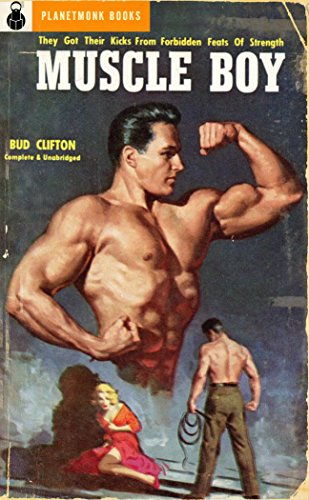 Besides the novels and other literary works published under his name, he also published a wide range of pseudonymous cowboys, thrillers and exploitation novels. Pulp novels about juvenile delinquents written under pseudonyms proved very popular, were translated into numerous languages and D for Delinquent was one of Ace’s top sellers for 1958. The Power Gods, about a motorcycle gang, was set in Nevada. Muscle Boy features in many histories of gay pulp fiction. Muscle Boy was inspired by an actual crime ring based in San Francisco, but Clifton transplanted the action to Muscle Beach and populated it with an assortment of flamboyant party boys and hustlers. The reaction of the real life figures identifiable in the novel was one reason he left the San Francisco area, more or less permanently, in 1959. He died January 19, 1968 in Fredensborg, Denmark. His death was reported as being from a stroke. Stacton had suffered from epilepsy since a child.
1964 – (Andrew Ivan) Andy Bell the lead singer of the English Synthpop duo Erasure was born today. Originally working in a meat packing plant in the UK, Bell responded to a newspaper advert that was looking for a singer. The 43rd auditionee responding to the ad, he was picked by Vince Clarke and together they formed the group Erasure. The pair have sold over twenty million albums worldwide. Apart from his work with Erasure, he has taken part in numerous charities including the Ferry Aid version of "Let It Be" in 1987, a cover of Cole Porter's "Too Darn Hot" that was included in 1990s Red Hot + Blue album to raise funds for AIDS and HIV research, re-making Lene Lovich's "Rage" alongside her to be included in PETA's album in 1991 in favour of a wildlife campaign and performing twice on Big Spender's Red Hot and Dance events to support various AIDS projects (in December 1994 and November 2004). Bell also performed on the True Colors Tour 2008. Bell sang the role of Montresor in Peter Hammill's opera The Fall of the House of Usher, released in 1991 and reissued with a new recording in 1999. He is openly gay and was a longtime partner of Paul J. Hickey. On 17 December 2004, he publicly announced that he is HIV-positive and has been aware of this since 1998. Bell told Melody Maker in 1986,
"I don't want to go out of my way to talk about it but I'm not going to pretend I'm not [gay]. I won't portray a heterosexual in videos and we're consciously doing lyrics that could apply to either sex".
He told Barry Walters of Seventeen, "I want to be known as a good performer but it's important for me to take a stance. If you're doing music you use it for something and have substance being gay and open about it." In a 2007 interview, Bell remarked that a complacency exists among gay men about HIV, specifying that:
There are definitely HIV-positive people who meet other HIV-positive men, and like still having unprotected sex. I think it must be quite hard for young gay men because there is so much for them now to do - there are so many saunas and stuff like that for them to go to, and it's so easy to get it."
He has also practised reiki since the early 2000s. He has suffered from avascular necrosis (which has no relationship to his HIV diagnosis) and has had both hips replaced. Bell has stated that this keeps him from "pogoing around" compared to previous performances. July 2005 brought the announcement of Bell's first solo album. He signed a worldwide solo recording deal with Sanctuary Records and announced details of his debut album, which was released on October 3, 2005, and entitled Electric Blue. The album features fourteen tracks, including three duets, with Claudia Bracken of Propaganda and Jake Shears of Scissor Sisters, and encompasses a variety of musical genres.
1965 – An estimated 150 people participated in a sit-in when the manager of Dewey’s Restaurant in Philadelphia refused service to several people he thought looked gay. Four people were arrested, including homophile rights leader Clark Polak of Philadelphia’s Janus Society. All four were convicted of disorderly conduct. Members of the society also leafleted outside the restaurant the following week and negotiated with the owners to bring an end to the denial of service.
1971 – Jose Roberto Pulido Jr., known professionally as Bobby Pulido, is an American singer, songwriter, guitarist, and actor. He is credited for introducing Tejano music to a youthful crowd and became a teen idol and one of the most influential Tejano recording artists among Mexican American teenagers. Pulido debuted on the music scene in 1995 as the lead vocalist of his eponymous band. That same year he signed a recording contract with EMI Latin and released his debut album, Desvelado. The album peaked at number nine on the United States Billboard Top Latin Albums chart and at number three on the U.S. Billboard Regional Mexican Albums chart. The title track of Desvelado launched Pulido as a popular Tejano musician, but he was criticized by veteran musicians, who believed he was successful in the genre because of his father Roberto Pulido's established music career. In 2003, Pulido made his acting debut by starring in the made-for-television film La Decada Furiosa. He also appeared in the telenovelas Fuego en La Sangre and Qué pobres tan ricos. Pulido married Eliza Anzaldua in July 1996. They had three sons. However, Pulido filed for divorce in September 2013, after 17 years of being married and four months of separation. He currently resides in Miami, Florida and enjoys working out, eating healthily, and playing golf; his favorite pastime is playing guitar and he finds composing songs therapeutic. During his musical career, Pulido's fans questioned his sexuality; he said he is not homosexual but rumors that he had slept with men continue to circulate. Pulido spoke to a Mexican television news program in 2013, and told viewers he is heterosexual and that he has gay fans, which he said did not concern him. In April 2010, media outlets questioned Pulido after he released a music video in which he plays a stereotypical gay male; the singer said he wanted to "try something different [in his music videos]" and defended his gay followers, saying he nothing against the LGBT community. After American Latin pop singer Ricky Martin publicly announced his homosexuality, Pulido defended Martin's choice, saying "he is living his dreams". Pulido has been an outspoken opponent of the 2016 U.S. presidential candidate and Republican presumptive nominee Donald Trump. On his Instagram account, Pulido uploaded a picture of himself "urinating" on Trump's star on the Hollywood Walk of Fame.
1978 – St. Paul, Minnesota repeals its four-year-old gay-rights ordinance by a margin of 2-1.
1979 – Jury selection begins in the trial of Dan White for the murder of S.F. Mayor George Moscone and Supervisor Harvey Milk.
1988 – Jonathan Bailey, born in Oxfordshire, England, is a British actor in theater and television. He is best known for roles on the television series Broadchurch and Crashing. He is openly gay and is involved with the Albert Kennedy Trust for LGBT young people who are homeless or in negative circumstances. Bailey decided he wanted to act when he was watching a Christmas play of Oliver! with his grandmother. a Through the dance school of one of his sisters, he got an agent who put him through an audition at the Royal Shakespeare Company. He acted the first time in 1995 at a performance of A Christmas Carol as Tiny Tim in the Barbican Theater on stage. Next came the role of Gavroche in the musical Les Misérables. He did not go to a theater school or university, but began rehearsing for a production of Beautiful Thing in 2006 right after his school leaving exams. In 2018, Bailey starred in a homosexual relationship in the early 60s in a 2001 re-production of Peter Gill's The York Realist at Donmar Warehouse . In preparation he read Alan Down's The Velvet Rage and attended the Queer British Art Exhibition at Tate Britain . He said, "I want to find stories that humanize homosexual experiences and Peter Gill does it well." In a 2018 and 2019 Gielgud Theater revival by Stephen Sondheim's Company starring, Bailey played the original female role Amy as Jamie in a swapped cast, so that in this variant a homosexual couple was shown. He said, “You literally don't have to change a single word and suddenly you have a very honest, glowing portrayal of a man stepping on the spot between queer culture and the heteronormative ideal of marriage. This contradiction and the debate are so relevant right now.” He won the Laurence Olivier Award for Best Actor in a Supporting Musical Role for Jamie. For the Albert Kennedy Trust, Bailey arranged a fundraising gala with Chief Exec Tim Sigsworth in the Donmar Warehouse in 2018 and hosted one with the rest of the Company's cast in 2019 . Bailey was best known for a supporting role in the first two seasons of Broadchurch in 2013 and 2015 as newspaper reporter Olly Stevens, a leading role in W1A from 2014 to 2017 and in 2016 in Crashing as Sam, who discovered his homosexual feelings for a house roommate. In 2020 he will appear in the series Bridgerton, a film adaptation of the book series of the same name by Julia Quinn.
1993 – The Third March on Washington has an estimated attendance one million people.
1995 – Lawrence, Kansas passes an ordinance prohibiting discrimination based on sexual orientation. The law, the culmination of a 7-year struggle, is the only one of its type in the state of Kansas.
[{(o)}]|[{(o)}]|[{(o)}]|[{(o)}]| [{(o)}]|[{(o)}] |
